legally organized. Action in public space / photo documentation 2015
Adam Ulen, Austria
14 April 2023
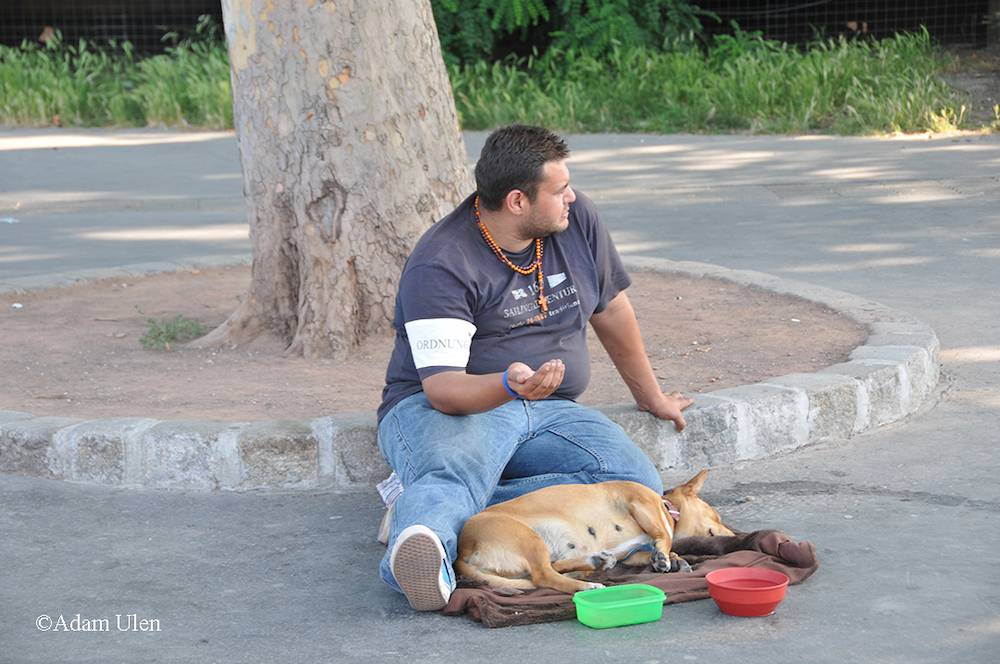
State security laws regarding begging have been tightened in recent years. But it remains a matter of interpretation what is understood under the offence of “organized,” “commercial” or “aggressive” begging. The resulting wide scope for sometimes draconic penalties by both the executive and the judiciary are, of course, questionable. It’s important that public space remains a field for social diversity. Poverty must not be banished from the field of vision. This would manipulate the perception of socio-economic reality.
“legally organized” questions the text of the law ironically. The offence of unauthorized begging is taken up in an unusual way: A handful of beggars work “freelance” for the duration of the action under a work contract. They become service providers paid by the artist for doing their profession (begging). Furthermore, the contract guarantees that the begged donations are in the possession of the service providers. Armbands with the inscription “order” serve as a uniform attribute as well as an indication of organized action. Because this “illegal organized group begging” was registered with the authorities it became legal and no serious intervention by the police was possible.
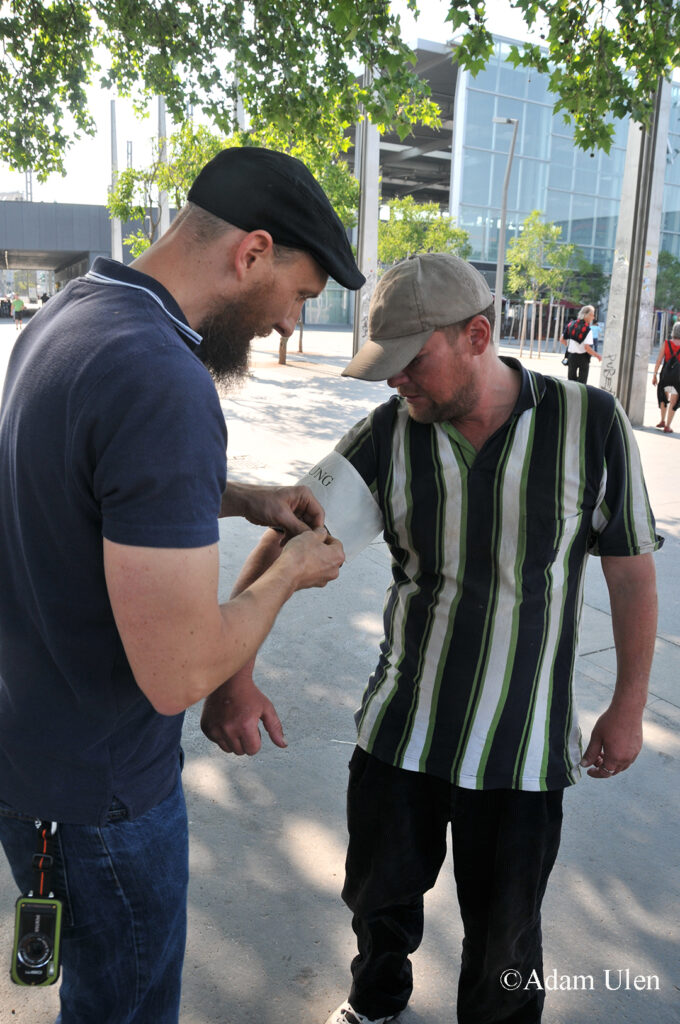
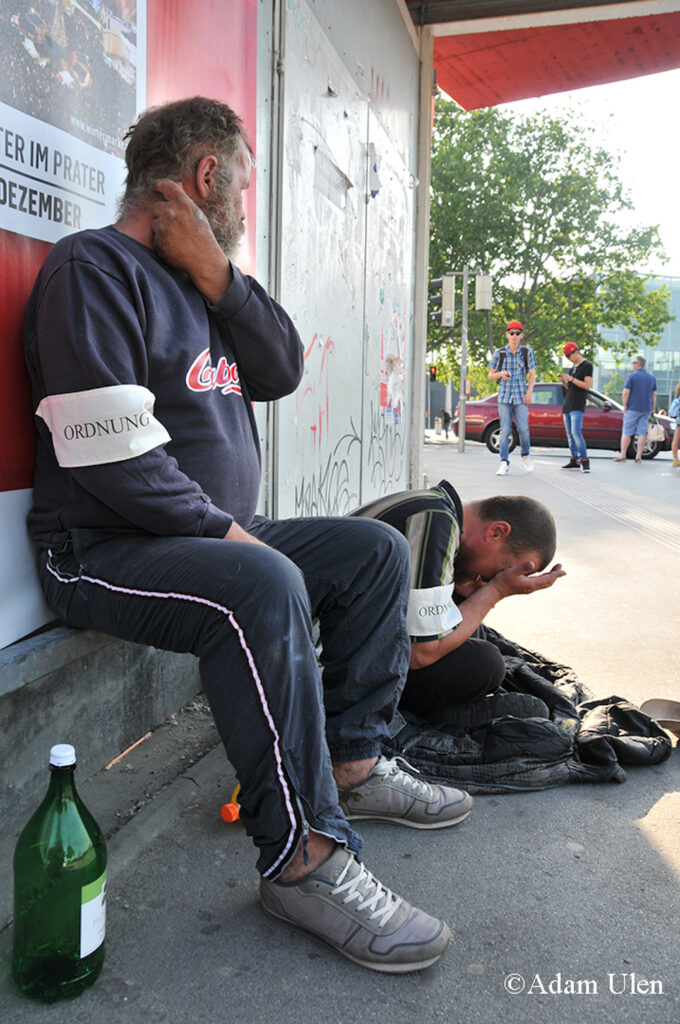
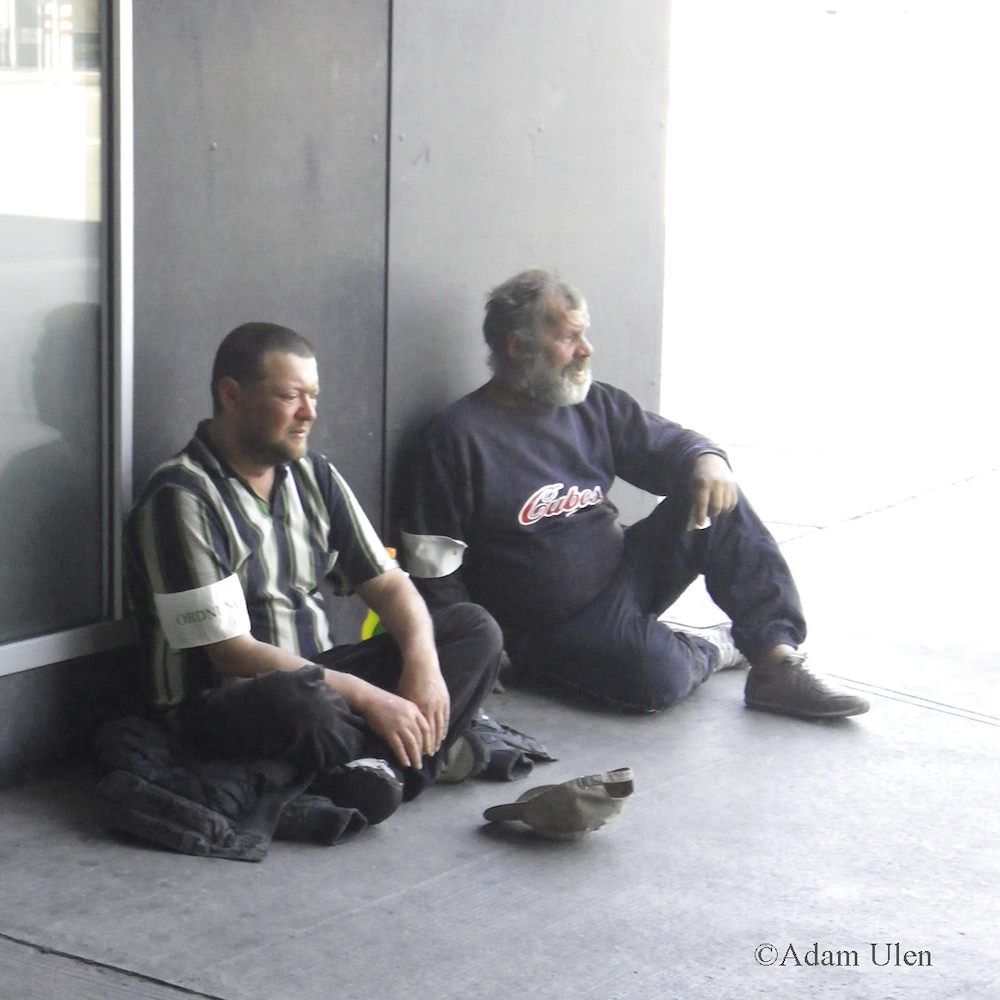
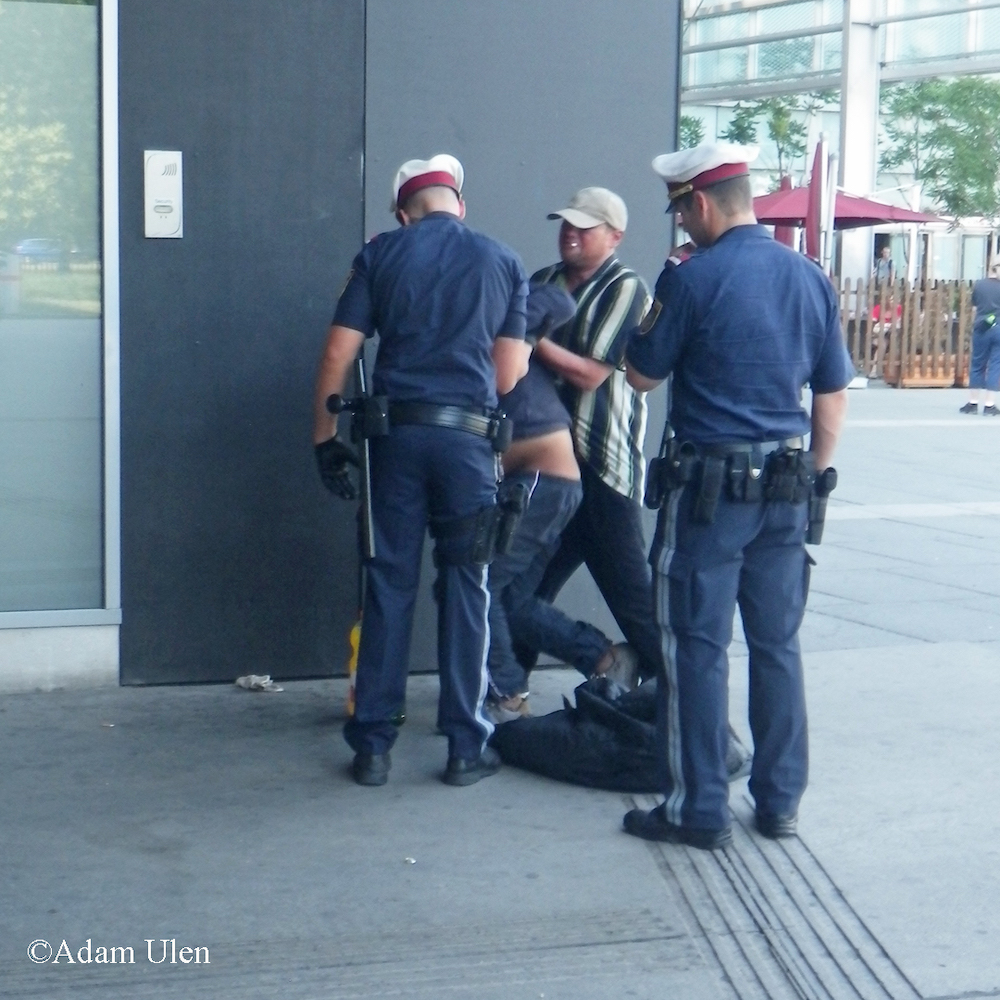
In view of this, one wonders where the boundary between legality and illegality really lies and whether this can be exactly defined at all. Normally, the legislature tries to locate this limit as precisely as possible by means of a legal text that is formulated as precisely as possible. But this is not the case here. The “Beggar Law” pretends to prevent the exploitation of the needy, to prevent begging from being misused as a profit-oriented profession and to protect passers-by from aggressive attacks. The text of the new law is short, and the individual elements of illegal begging are undefined. In Vienna, for example, a simple “Please, please” could be punished as obtrusive begging. Or if a group of beggars are arriving or leaving the scene together, maybe even in a private bus, the police can already arrest them as a commercially oriented organization of beggars, even if the individuals only beg money for themselves or their families and do not have to give anything to a gang leader or an organization. In most cases “illegal begging” is punished immediately with severe fines. But those affected rarely object out of fear, ignorance or language difficulties. The suspicion arises that there are other reasons why the text is so open and allows for an interpretation that makes begging in itself almost illegal. Here another line is encountered, that between ethical and unethical, between the real need for legal order and its abusive use, public space for all or only for “chosen ones”… And who crosses which lines in this matter?
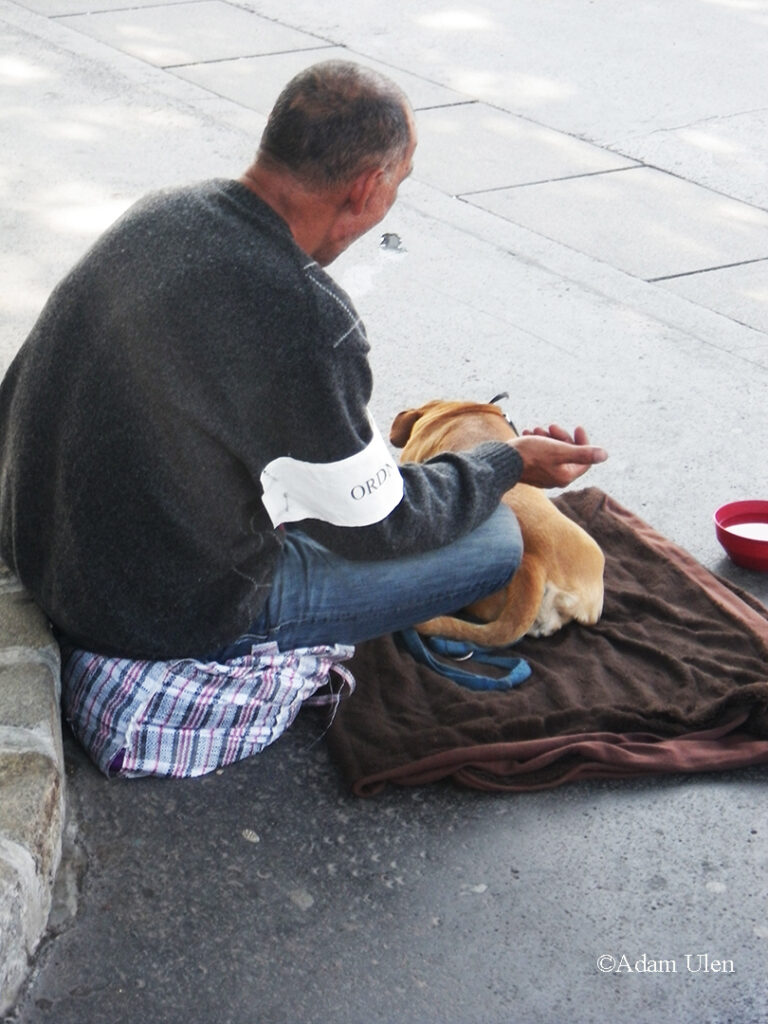
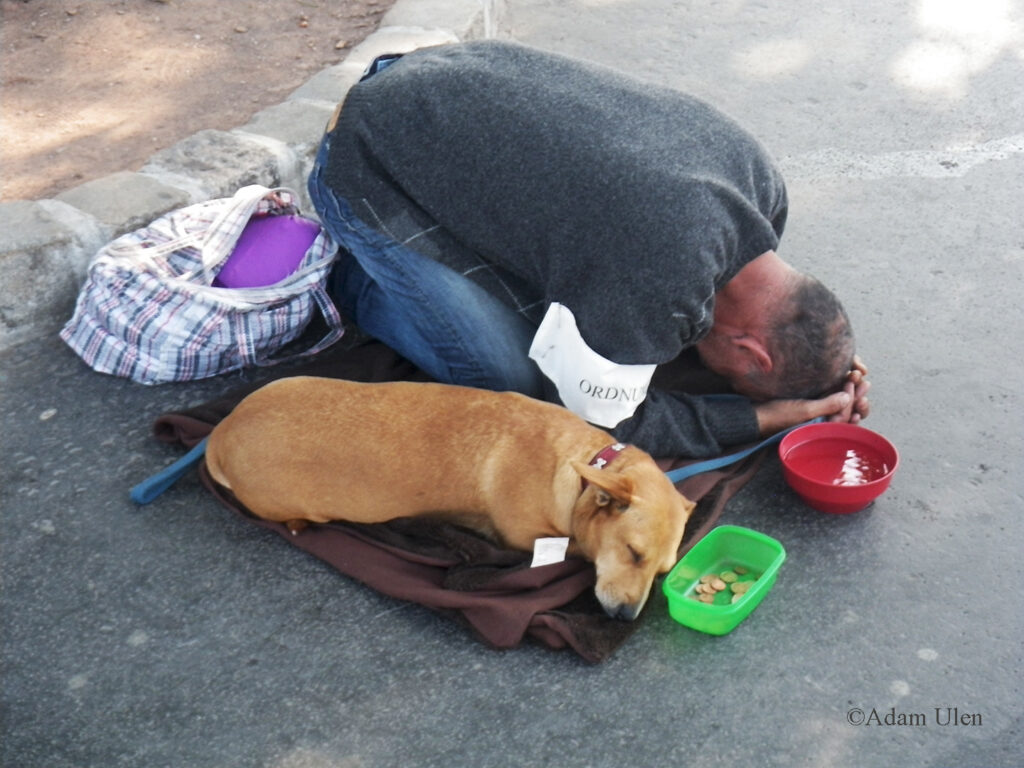
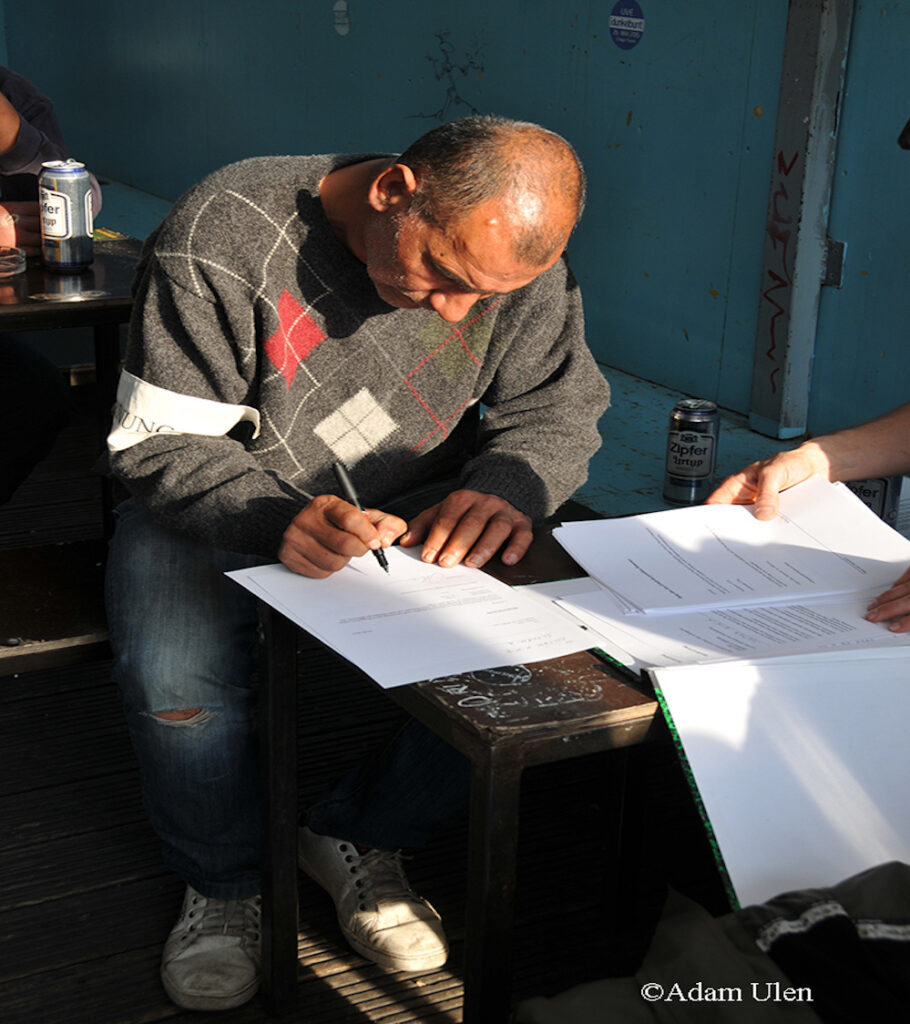
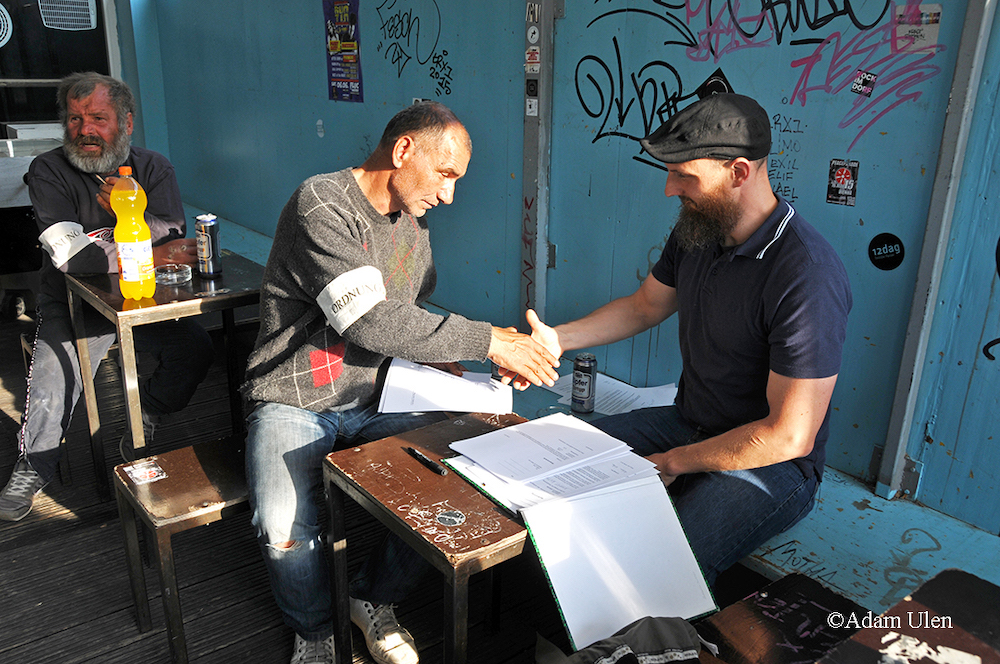
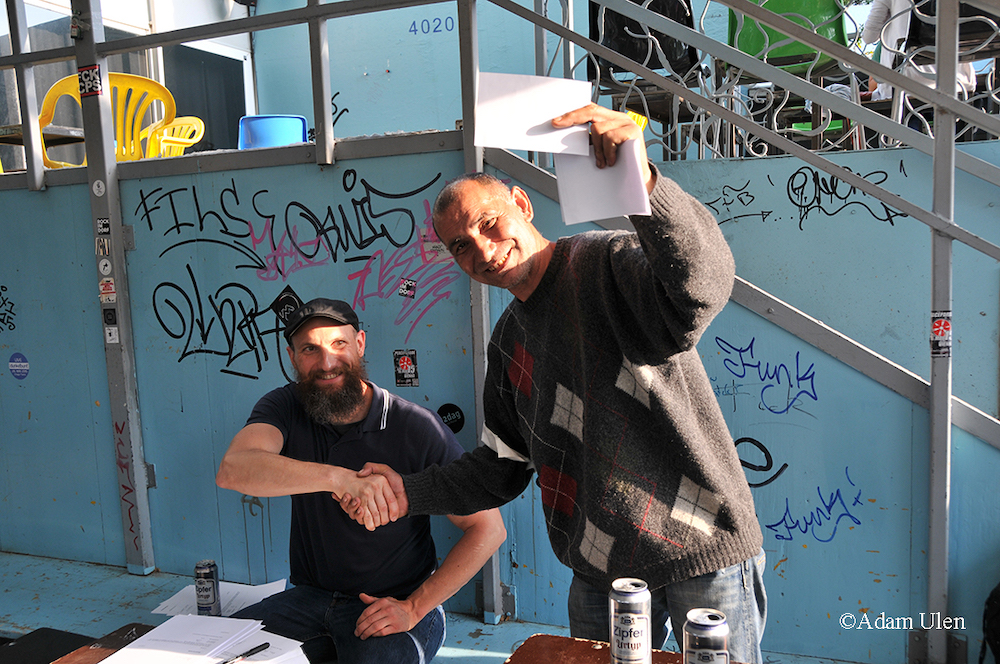
The actors in this campaign are people who earn their meager living through begging in order to alleviate their misery. According to a decision by the Austrian Constitutional Court in 2012, people can draw attention to their plight in public and ask for help. So they don’t do anything forbidden. Nevertheless, great efforts are being made to oust poverty from the urban public space, especially from the shopping streets and the touristically valuable and expensive centers. The best example is the fortunately unsuccessful attempt to obtain a general ban on begging in the city of Salzburg. However certain areas of the historic center may not be entered by beggars. The public space is increasingly dominated by capitalist-oriented interests that want to see all potentially business-damaging disruptive factors eliminated from their environment. These self-interested forces are supported by the bourgeoisie’s conservative notions of order and security and a general tendency to avoid situations that arouse uncomfortable feelings. We are all challenged to think about which side to stand up for as a benefit to society. And if sometimes it wouldn’t be better to cross a border… in the right direction.
